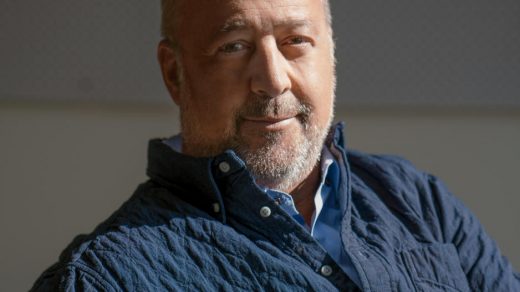“Bizarre Foods” Host Andrew Zimmern Explains How Travel Helps Rewire His Brain
Andrew Zimmern is one of TV’s best-known travel-show hosts, so it’s no surprise that the man behind Travel Channel‘s Bizarre Foods series is a big advocate of going to far-away places and learning about other cultures. But for Zimmern, trips offer more than just the obvious benefits, such as stimulating creativity or letting go of stress. As he sees it, travel also has a very specific, practical impact on the way you interact with—and think about—the world.
It Makes You Build Connections
Going to new places forces you to change the way you interact with your surroundings. “I believe that we are the best versions of ourselves when we travel,” Zimmern says. “We’re more engaged with other people, we’re more curious, we’re less risk-averse, we’re more interested in other people, more selfless.”
“Every positive emotional, psychological, and personality totem that you could name,” says Zimmern, “is burning brighter and is more effective when you’re traveling.” One reason is that travelers are so much more dependent on other people. “You’ve got to ask directions. You need to ask for help all the time,” he says. “At home, I can go days without asking somebody for help. By its very nature, traveling makes you curious.”
It Forces You To Be More Engaged
The more familiar your surroundings and routines are, the less attention you pay to them. “I drive down the same street all the time, and I’m talking on the phone, I’m looking at my notes, I’m trying to do three things at once on the drive home,” says Zimmern.
“I’m running through the list about the laundry I need to pick up, the conversation I have to have with my wife when I get home, blah, blah, bah. Terrible, terrible, terrible.” Traveling sweeps away this mental immersion in hectic routines. Instead, he says, “I’m just looking out the window, thinking to myself, ‘Oh my fucking God, this is Cyprus. Why aren’t more people here?’ I’m just more engaged, right? I’m more in it.”
It Makes You More Resourceful
There are real, practical upsides to the new connections travelers tend to experience, says Zimmern. Seeing the world from an altered perspective can actually make you more resourceful, inventive, and even less wasteful.
Zimmern tells a story about how travel profoundly transformed his daily routine back home:
My wife wanted to turn our house completely green, and I was against it. She couldn’t even get me to recycle bottles all the time. Sometimes I would be too lazy and just throw them in the waste basket. So I go to Botswana and spent 10 days living with the bushmen in the Kalahari. One day they said, “We’re going to go hunt birds using snap snares.” They speak in clicks and whistles, so this was done through a series of translators. I said, “Fantastic!” I was very eager, because we had been eating bugs and marula nuts and porcupines and other things.
The hunters determined that they needed new ropes to get the job done. “So the women and the children ran out into the bush and came back with piles and piles of reeds. The whole tribe sat down side by side and wove it between their toes. They made 20 lengths of rope in about 45 minutes. It was the most incredible thing I’ve ever seen,” he says.
But the work had just begun. “So we walk about three miles to this place where we collect all these nuts and berries, and then we walk three miles in the other direction,” he recalls. “I say, ‘What the fuck are you guys doing?’ They sprinkle the nuts and berries all over this 10-foot circle of dirt and then build snap snares all around it.”
The next day, Zimmern and the hunters returned to the same spot. “Sure enough,” he says, “every single one of them had a big [bird] in the snare, all of them dead, broken neck—fantastic. These guys are brilliant hunters.” Feeling inspired and trying to be helpful, Zimmer recalls, “I take out my pocketknife and go to cut the rope from around the necks of the birds. And, I mean, I wasn’t tackled, but [almost].”
Zimmern was stunned. The head shaman approached him “and said to me, ‘Why are you cutting our rope!?’ I clearly had crossed the line. I said, ‘I am so sorry, I had no idea.’ He was like, ‘We untie the ropes and reuse them until they fall apart.’”
At that point, something clicked in Zimmern’s brain. “It dawned on me that I live in a house where there’s a ball of twine in five different junk drawers in the kitchen, and we use it once a year to tie the Christmas tree to the top of the station wagon. I just use my pocket knife and cut the rope. I mean, it’s 69-cent twine!” Not so in Botswana, though. “It’s something that they made, and they only take from nature what they need.”
“I got back from that trip and I’ve been the greenest motherfucker on planet Earth,” Zimmern says. “That changed me instantaneously, because every time I go to throw something in the wrong place or do anything that’s a crime against Mother Earth, I see the face of [the shaman] looking at me and shaking his head, saying, ‘Why do you want to cut our rope?’”
Fast Company , Read Full Story
(62)














